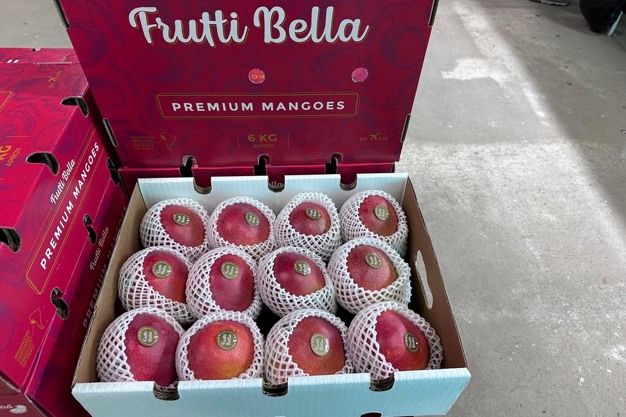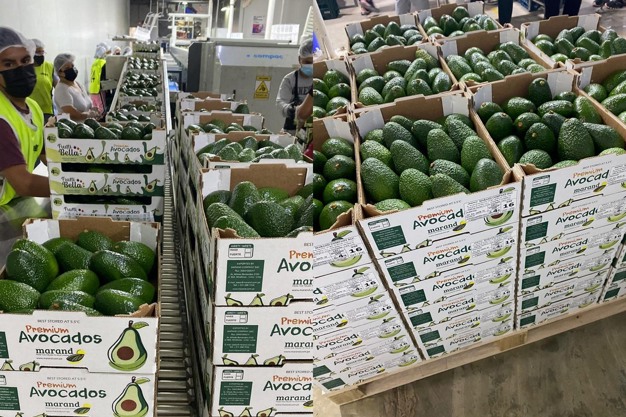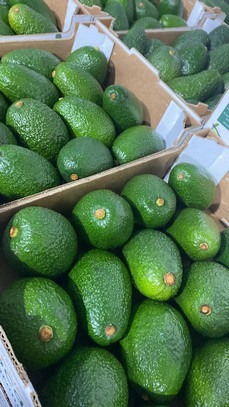The latest Peruvian mango and avocado export season has been marked by low prices, logistical challenges, and saturated markets, but also by innovative strategies that have allowed exporters to remain competitive. By focusing on niche markets and optimizing processes, companies have managed to overcome the challenges of an atypical season.

Mango: low prices and adaptive strategies
The price of airfreight mangoes, an exclusive, high-quality product marketed in 6 kg boxes, has dropped by 55% compared to January 2024. "The price isn't good, but we are adapting to the market's conditions because, if we don't, we won't be able to continue," says Giannina Denegri Baiocchi, general manager of the Peruvian Marand Company, highlighting the pragmatism necessary to survive in a changing environment.
Also, logistical problems, such as a shortage of boxes, have made things tougher this season. However, good planning prevented major setbacks. "We anticipated the situation and had the material in stock. The market forces you to adapt, and that's what we did."
Despite these challenges, the company continues to export mainly to Spain. "In the end, we exporters have to adapt to the market's conditions, and growers have to accept the right price to be able to continue exporting," she says.

Avocado: a slow but promising start
The avocado season has started with some delays due to abnormal sea swells and rains that have taken a toll on the harvest and the departure of ships from Peruvian ports. "We haven't been able to load yet because of abnormal sea swells and we haven't harvested much because of the rains," says Denegri. She also mentions that "the ships have not made it to Peru" and that "the routes from the port of Chancay will start between April and May."
 The first avocado containers are being shipped to China, although Denegri says that "prices are around 20% lower than last year due to the fact that the Chinese are focusing on cherries, which are a premium gift." However, prospects are good. "We are expecting between 5 and 10% growth in areas such as the Peruvian highlands. In general, 20% growth is expected."
The first avocado containers are being shipped to China, although Denegri says that "prices are around 20% lower than last year due to the fact that the Chinese are focusing on cherries, which are a premium gift." However, prospects are good. "We are expecting between 5 and 10% growth in areas such as the Peruvian highlands. In general, 20% growth is expected."
Nevertheless, Europe is dealing with an oversupply of fruit from multiple origins, resulting in tougher competition. "Things won't be like last year, but we expect the European market to become stronger in the coming months," she says.
Marand Company's strategy remains focused on targeting exclusive markets, choosing to export mango by air, rather than by sea. "We have always worked with airfreight mango. Our business strategy is to supply quality fruit to niche markets," says Denegri.
The company also keeps a close eye on the opportunities offered by the port of Chancay. Although only one ship was sent at the inauguration and "the routes will start between April and May," this port promises to reduce transit times to Asia, so the quality of the fruit will also improve.
Taking part in international fairs continues to be key for Marand. "I'm increasingly convinced of the importance of fairs. Not only do you build customer loyalty, but you also meet new clients, make new contacts, and enter new markets," she says.
 For more information:
For more information:
Giannina Denegri Baiocchu
Marand Company
Av. Benavides 2150 Of. 802
Miraflores - Peru
Tel.: (+511) 288 7232
Tel.: (+511) 982 331 228
[email protected]
www.marand.com.pe










